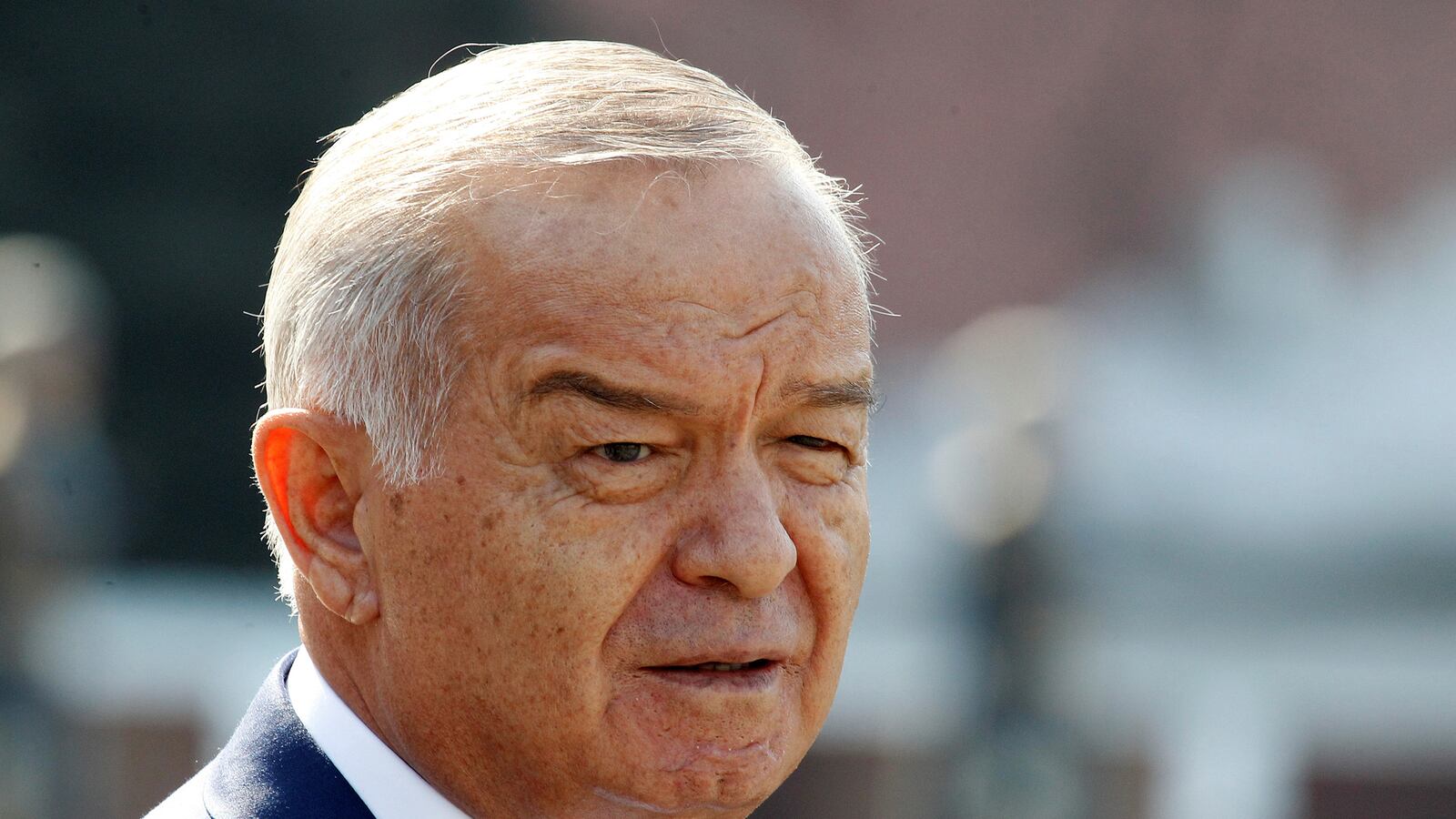KIEV — The death of president Islam Karimov of Uzbekistan ends the reign of one of the longest-serving rulers of the former Soviet republics in one of the world’s most corrupt and brutally repressive regimes.
Karimov had been in power since the country gained independence in 1991. In Uzbekistan, the republic least desirous of breaking away from the Soviet state, Karimov was the communist party chief when he assumed the presidency that year; he and Kazakhstan’s Nursultan Nazarbayev—his regional rival—had alone held on to power to the present.
Karimov and his vast security state maintained control of all levers of power: through sham democracy—Karimov always won by implausibly wide margins—a wholly compromised and corrupted legal system, an intrusive security apparatus, and pervasive military presence.
Karimov disdained all constraints or judgments, especially from those in the West who decried the human rights abuses, endemic corruption, and closed economy that carried along those in power year after year.
Uzbekistan has vast natural resource wealth, with some of the world’s largest supplies of gold, uranium, natural gas, and cotton, yet the huge profits generated by these assets enriched a tiny few; meanwhile, millions of Uzbeks were forced to travel abroad, mostly to Russia, to seek work in menial jobs to send monies home to support their families.
Although Karimov was ever-desirous of the respect he felt due an international eminence such as himself, laudatory affirmation eluded him, especially after the government massacre in the city of Andijan in 2005 made Uzbekistan something of a pariah state.
To be sure, Uzbekistan is well off the mental map of almost everyone except those who understand its strategic importance. It is the most populous and densely populated of the Central Asian states. It also abuts Afghanistan at the strategic Amu Darya River, and it is over a bridge of that river that the last Soviet troops left Afghanistan.
Uzbekistan is also is home to the most intensely devout Muslim region in Central Asia—the fertile Ferghana Valley, in the nation’s east, sometimes called the Islamic heart of Central Asia. Karimov’s government and the security services closely controlled the Islamic clergy and mosques throughout the country.
The government has for years seen Islamic-based terrorism as its greatest threat. The regime’s detractors noted that the government often used the threat of terrorism to ever-more-harshly control its citizens.
The fears were not entirely unfounded. There were intermittent bombings, always linked to “Islamic terrorists.” An especially brutal round of repression swept the country after the attacks in Paris in November 2015; according to human rights advocates, mass arrests and door-to-door searches became commonplace.
The U.S. had courted Uzbekistan after September 11, 2001, when it needed a base in the region to support the coming invasion of Afghanistan. The U.S. was allowed to use two airbases, at Khanabad and Karshi, or K2. Millions in U.S. military and aid dollars flowed in.
Then came Andijan. The massacre in that small city in the Ferghana Valley created a series of events that Karimov could not control. The U.S. suggested an independent investigation. Taking umbrage at what he perceived as interference in national affairs, Karimov promptly evicted the U.S. from the airbases. For a while, Karimov moved closer toward Russia. Western NGOs packed up and went home.
Eventually, the precarity of supply lines through Pakistan for ongoing U.S. and NATO military operations in Afghanistan led the U.S. to seek Karimov’s support for an alternative route—what became known as the Northern Distribution Network—through Uzbekistan. Technically, only nonlethal goods traveled across the country into Afghanistan.
There were two schools of thought on Karimov. He was widely hailed as a crafty and well-seasoned pro who nimbly played the West against Russia to his advantage, see-sawing between the two as he saw fit. Yet the opacity of the elite’s decision-making process, a lack of access to government officials by Western diplomats, as well as what were often perceived as lurches in policy led some to conclude what was on display was not well-considered statecraft but instead the colliding of interests at top levels and often irrational, not clearly thought-through actions.
The question of succession was never publicly discussed in Uzbekistan. As with all else, there was simply no debate. From the outside, power was widely seen as shared between Karimov and the security service: the SNB, the successor to the KGB. However, decision making within the power centers was completely closed off to those outside of it, and even seasoned diplomats were left making best guesses as to who was doing what and why.
Many felt the tension between Karimov and the security services underlay the removal from power and public humiliation of Gulnara Karimova, Karimov’s eldest daughter.
A sleek and grasping oligarch who at various times styled herself a fashion designer, diplomat, and singer, Gulnara for years inserted herself into many of the most lucrative sectors of the economy, all without fear of reprisal: she simply took over businesses. She was widely seen as angling for the spot as her father’s successor. Her sky-high hubris came crashing to earth in 2014, when the government seized her assets and she was placed under house arrest.
With Karimov’s death, the handful of people who control the largest sectors of the economy will no doubt continue to do so. The government will do its best to hold on to the status quo: the country’s repressive, stultifying, and thoroughly corrupt security state is far too profitable to let go.
Natalie Anderson is the pseudonym of a writer who continues to travel in some of Central Asia’s most hostile countries.






